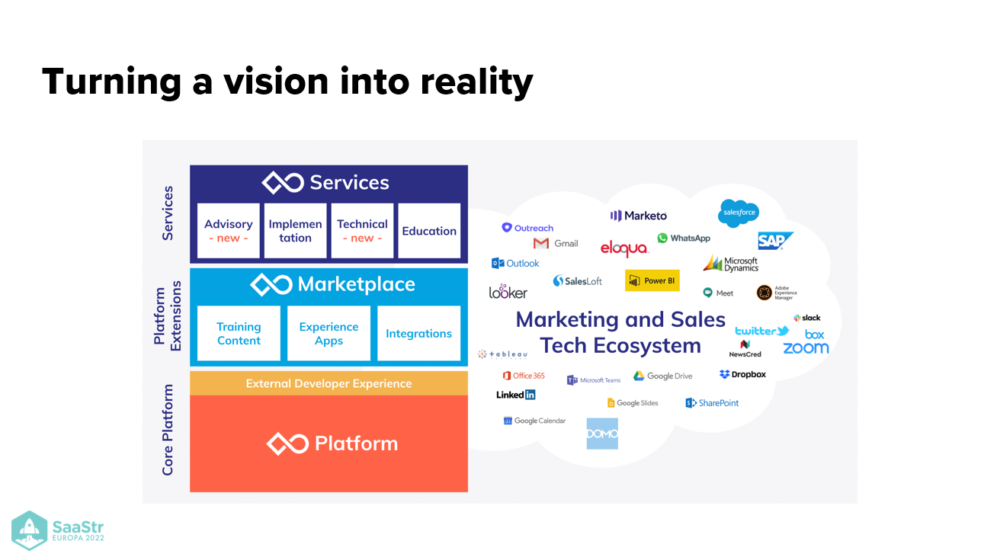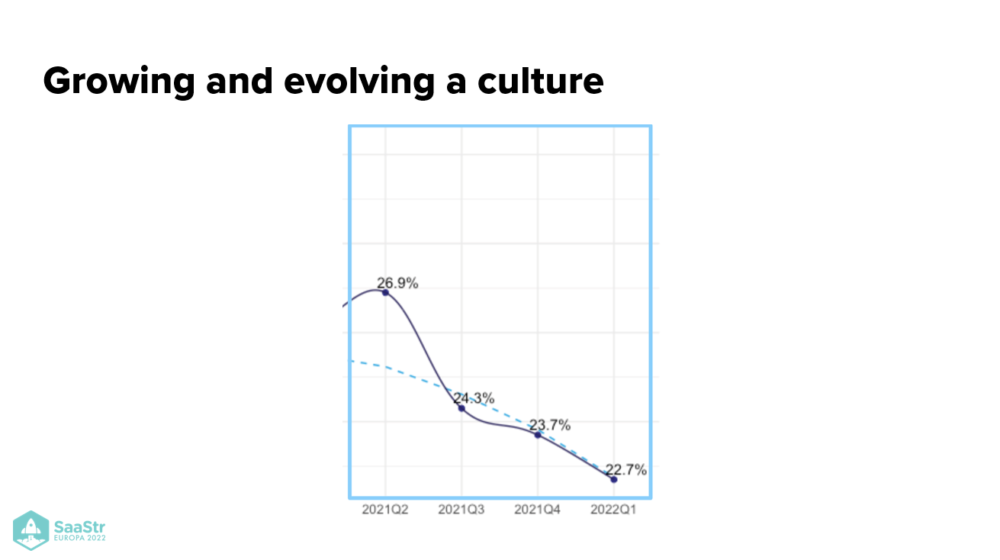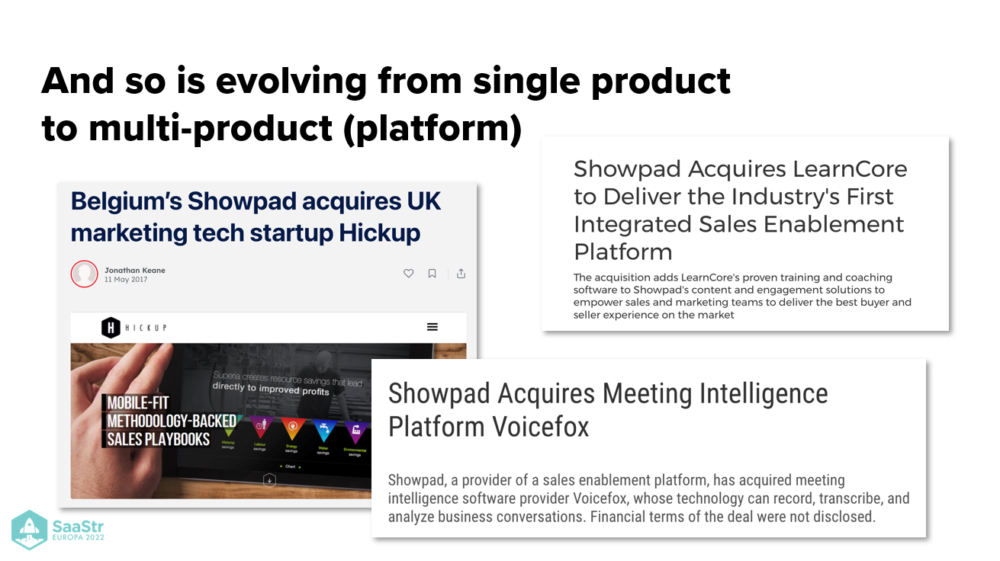The $100 million in Annual Recurring Revenue (ARR) mark is a magnificent milestone for companies that indicates sustainable business growth. While every startup is eager to hit this mark quickly, it’s a process that takes time. Scalability is about capability, so businesses need to understand whether they have the capacity to grow and whether their infrastructure and team can accommodate growth.
The stage of scaling from $10 million to $100 million ARR may seem like a daunting task, but it is an exciting one. Pieterjan Bouten, Co-Founder and Executive Chairman at Showpad, reveals lessons learned and mistakes to avoid while scaling your business.
The Good
Turning a vision into reality
In business, having a clear vision is critical. It is a powerful tool to accomplish the results you want. Businesses that lack vision lack purpose. A solid direction for a business can build a sense of belonging and connection between the founders and the team, making the business more likely to achieve its vision and purpose.
Once you have solidified your company’s vision and have developed a strategic plan on how you will achieve success, don’t get too comfortable. Remember that, as with any business venture, there are going to be hardships and challenges along the journey. A solid vision will not protect you from the inevitable growing pains.

Growing a culture
A beautiful thing about scaling a business is that you get to meet and hire talented people and empower them to grow with you. Periods of high growth, however, can test the strength of company culture.
The priority is to ensure that the desired company culture is at the heart of the organization’s behaviors, and this begins by holding your team accountable to the core company values.
Once you’ve defined your company culture, you must ensure that the culture is clearly communicated to every new employee who walks through your doors.
As you scale, you’ll have more stakeholders to manage and unify. If you want to preserve your culture as you scale, transform your team into an army of culture ambassadors.

The Showpad executive team strives to continually lower talent attrition
The Bad
Creating a category
Founders know how difficult it can be to create brand differentiation within an existing category since, in mature markets, every market position has already been taken. That being said, genuine breakthroughs arise from creating new categories.
One of the significant aims of category creation is to position a new problem you’ve seen in the marketplace, often a problem that customers are not aware of yet. After all, category creation is both a rewarding and complicated process while scaling. Creating your own category requires a lot of money to succeed. Yet, you need to make sure that your solution comes up when people are researching, so you can close a deal.
Switching from a single product to multi-product
The way founders think about products and their development sets the approaches for how their company operates. Usually, the single and multi-product choice comes down to the company’s DNA.
However, going multi-product is much easier said than done. Many businesses have stumbled in this transition because switching to a multi-product mindset makes things slightly more complicated. If done correctly, however, a multi-product orientation can impact business performance.

The Ugly
Hiring the wrong executives
While scaling, one of the most important things that CEOs need to do is to hire the right executives. Hiring the right executives requires identifying someone who embodies skills, experience, mindset, cultural fit, and leadership.
The executive search process is collaborative. Leverage your network and the people you know in certain domains first.
Because adding the right executives to your team is essential to the success of a business, take the time to re-evaluate the way you have previously hired and change the interview process to fit your business as it is now and where you are taking it.
CEO exhaustion
The job of a CEO is tough and tiring. With so many work-life boundaries blurring, CEOs need to be intentional about sticking to a healthy schedule. If you’re exhausted, you’re probably going to make unwise decisions that will impact your team’s performance.
Prioritize your well-being. Scaling a business is super intense and involves a lot of hard work. Consider what steps you can take to improve your lifestyle so that you can ultimately lead a healthy company while living a healthy life.
Top takeaways
- Start from a bold vision and treat culture as a product. Building a strong culture takes cautious craftsmanship and implementation, just like a great product.
- Creating a category requires patience. It’s an arduous endeavor, but with perseverance and commitment, you can make your vision of developing a new category a reality.
- Hire the best for the next phase and prioritize your own well-being. Don’t run into the exhaustion trap. Block time to take care of the company by taking care of yourself.

